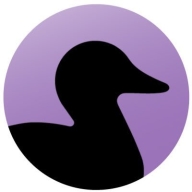

SonarQube and Software Risk Manager ASPM compete in application security and code quality. Software Risk Manager ASPM has an upper hand due to its comprehensive features, while SonarQube offers competitive pricing and solid support.
Features: SonarQube offers robust static code analysis, seamless CI/CD pipeline integration, and detailed code insights. Software Risk Manager ASPM provides advanced risk assessment tools, policy management, and comprehensive reporting capabilities.
Ease of Deployment and Customer Service: SonarQube offers straightforward deployment with ample documentation and community support. Software Risk Manager ASPM requires more extensive setup but offers strong customer service dedicated to security needs.
Pricing and ROI: SonarQube provides an attractive pricing model with a focus on code quality at a lower initial setup cost, potentially yielding higher ROI for budget-conscious teams. Software Risk Manager ASPM may require higher initial expenditures due to its extensive feature set, delivering greater long-term ROI through enhanced security and risk management benefits.
| Product | Market Share (%) |
|---|---|
| SonarQube | 18.2% |
| Software Risk Manager ASPM | 0.8% |
| Other | 81.0% |

| Company Size | Count |
|---|---|
| Small Business | 41 |
| Midsize Enterprise | 24 |
| Large Enterprise | 79 |
Software Risk Manager is an application security posture management (ASPM) solution that enables security and development teams to manage their application security programs at enterprise scale. By unifying policy, test orchestration, correlation, prioritization, and built-in static application security testing (SAST) and software composition analysis (SCA) engines, organizations can streamline their security activities across the enterprise.
SonarQube leads automated code review, enhancing code quality and security in AI-driven SDLCs. It analyzes pull requests, providing developers with actionable feedback and AI-driven fixes before code merges. Trusted by top enterprises, it supports SaaS and self-managed deployments.
SonarQube supports a wide range of programming languages and integrates seamlessly with CI/CD tools like Jenkins. It is renowned for its static code analysis, code coverage, and security vulnerability detection. While its open-source foundation and scalability are praised, users seek enhanced integration across multiple languages, better security features, and improved documentation. Despite challenges, its ability to automate code inspections and ensure compliance with coding standards makes it essential in software development processes, facilitating continuous improvement.
What are the most important features?In industries like finance, healthcare, and automotive, SonarQube is leveraged for static code analysis, automating code inspections, and ensuring compliance with stringent standards. Teams integrate it into their CI/CD pipelines to maintain high-quality code, identify security vulnerabilities, and enhance code maintainability.
We monitor all Static Application Security Testing (SAST) reviews to prevent fraudulent reviews and keep review quality high. We do not post reviews by company employees or direct competitors. We validate each review for authenticity via cross-reference with LinkedIn, and personal follow-up with the reviewer when necessary.